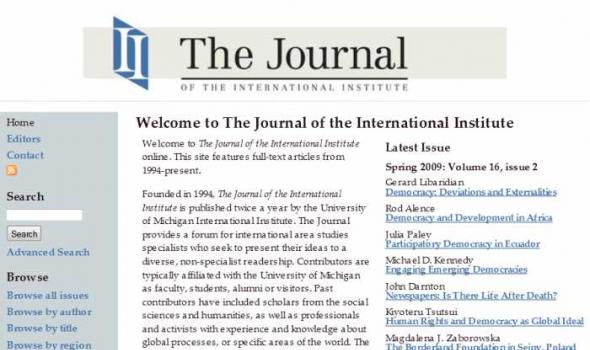Category: English, Anthropology, United States
Results
Myths are stories that explain why the world is the way it is. All cultures have them. Throughout history, artists have been inspired by myths and legends and have given them visual form. Sometimes these works of art are the only surviving record of what particular cultures believed and valued. But even where written records or oral traditions exist, art adds to our understanding of myths and legends.
Terra Incognita: An Online Exhibition This exhibit features early printed accounts of exploration and cultural encounters between what is known as the Old World or Europe and the New World or the Americas. The people on both sides of these encounters viewed the people they met through the screen of their culture and how they perceived the world, including their myths, legends, and religious beliefs. Both sides often had to reconfigure and rebuild their idea of the world with this new knowledge. The results yielded much knowledge and discovery but also misunderstanding, fear and violent attempts to control various groups.
History of Medicine Rewriting the Book of Nature Charles Darwin and Evolutionary Theory Charles Darwin’s vision—“from so simple a beginning, endless forms most beautiful and most wonderful have been, and are being evolved”—now forms the foundation of the biological sciences. Radical in sweep, Darwin’s idea of naturally innovating and endlessly changing webs of life undercut all previous sciences. Darwin was instantly seen as a potent sign of a new science, a new way of conceiving the world. His theory was an immediate threat not just to those who were wedded to an older conception, but to all who relied on a given and settled order for meaning and for power.
The Proceedings of the Western Society for French History publish selected, peer-reviewed papers from the Society's annual meeting. Founded in 1974, the Western Society for French History seeks to promote the study of French and Francophone history.
Welcome to Michigan Discussions in Anthropology Michigan Discussions in Anthropology is a topical journal published under the auspices of the Department of Anthropology at the University of Michigan . It exists as a service to the department, offering opportunities for students and faculty both to become editor of a compiled volume in their specialty and to publish their own work, thus furthering their professional advancement. All papers are subjected to external anonymous peer review before publication. MDIA is a regular topically oriented publication exemplifying Michigan's four-field approach to anthropological study by uniting papers from all four subfields which reflect the subject of each volume.
























